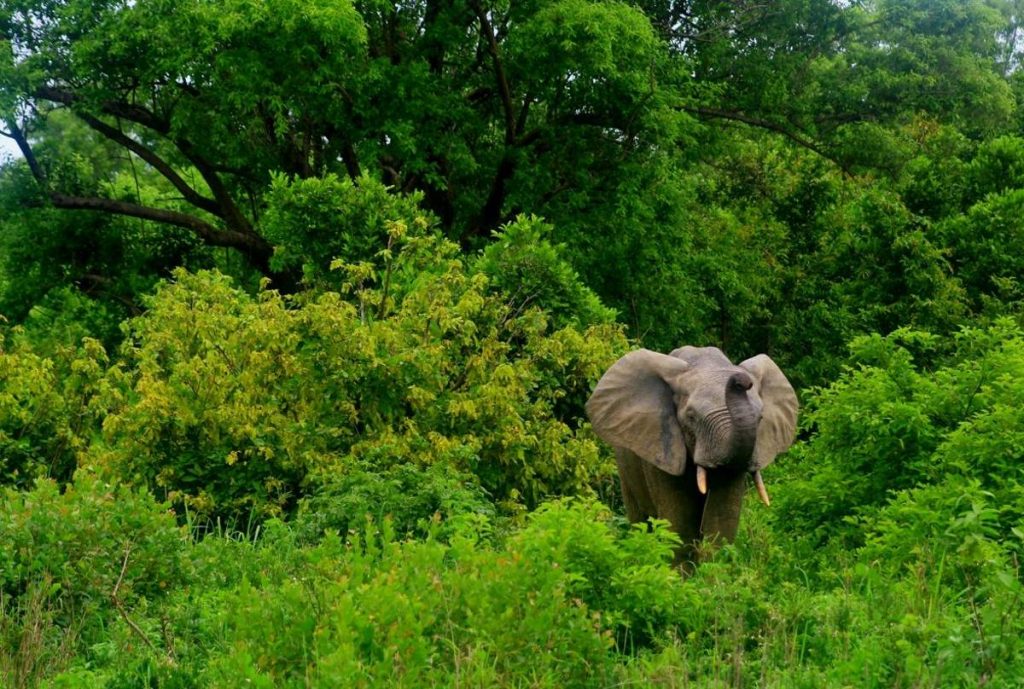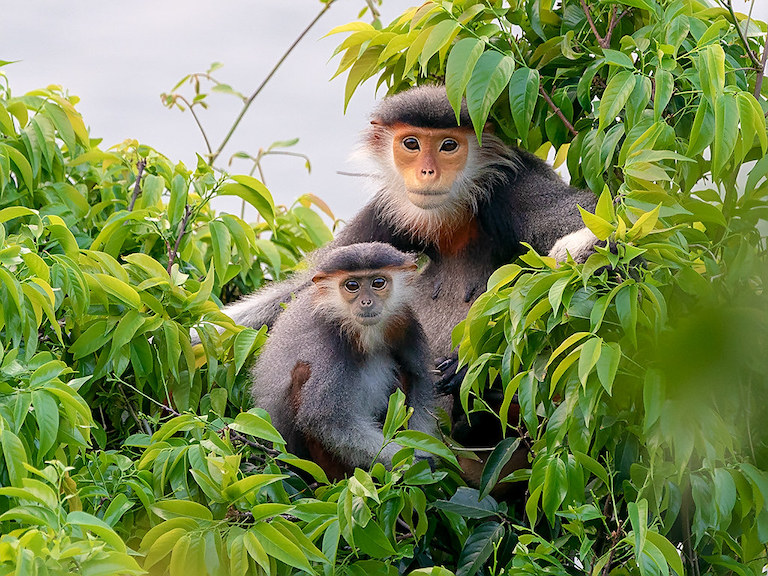
Home > What We do > Biodiversity Conservation
Biodiversity Conservation
FHI’s approach to biodiversity conservation is to ensure wildlife and habitat management and protection; research and monitoring; and restoring natural landscapes, which often includes species reintroductions
Biodiversity Conservation
In order for humanity to survive, we need nature. The widely accepted research shows that to reduce the impacts of climate change such as drought, flooding, and famine while maintaining healthy ecosystem services to provide food security, as well as clean water and air, 30% of the planet must be protected. The most effective solution we have to ensure healthy ecosystems that sustain all life on earth is to protect and conserve the biodiversity that still exists.

FHI’s approach to biodiversity conservation is to ensure wildlife and habitat management and protection; research and monitoring; and restoring natural landscapes, which often includes species reintroductions. This is supported through conservation law enforcement to prevent poaching or other illegal natural resource harvesting, as well as human-wildlife conflict mitigation efforts to support coexistence between communities and wildlife.
Since its establishment in 2012, FHI has been working to recover endangered species; rescue and rehabilitate distressed wild animals; train and equip
frontline forest staff in fighting wildlife crime; secure wild habitats; spread conservation awareness; support the green livelihoods of communities; and respond to wildlife emergencies.
Recognizing that recovery of a species is not sustained without the well-being and engagement of the local community, FHI, working in Ho Municipal, implemented a two year project, Strengthening Ecological Resilience Through Wildlife Conservation and Enhancing Human Well-Being in the Kalakpa Game Production Reserve. The project improved forest condition by undertaking direct restoration measures, and by reducing the effects of drivers of deforestation and habitat degradation and reduced vulnerability of the fringe communities to the changes in ecosystem by providing livelihood opportunities and restoring ecological conditions in the village areas.
As part of its restoration work, FHI also focuses on land restoration through ongoing projects that involve alien species clearance, tree planting and deforestation prevention. Strengthening Forest Management to Protect Biodiversity and Alleviate Poverty in Biakoye District. In contributing to achieving this, works in the Biakoye District through its Strengthening Forest Management to Protect Biodiversity and Alleviate Poverty in Biakoye District. The project is aimed at protecting and restoring the biodiversity of 11 forest communities, promote a move towards sustainable forest management practices, and enhance alternative livelihood activities to increase household incomes.

Want to hear more from us?
Find out how we’re changing the lives of vulnerable people and promoting environmental sustainability.
This email newsletter is administered based on our privacy policy, which tells you more about how we use your information. You can unsubscribe at any time. Over 18s only.
© 2023- Future Hope International (FHI). All Rights Reserved
P. O. Box 44 Kpetoe, Volta Region, Ghana
No. AGO/D/01, American House
Email: futurehope2015@yahoo.com/futurehopegh@gmail.com
Tel: +233244647951/+233200 662592
